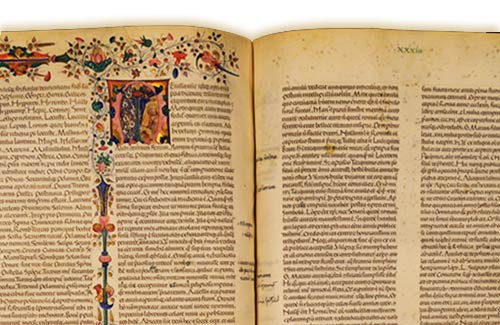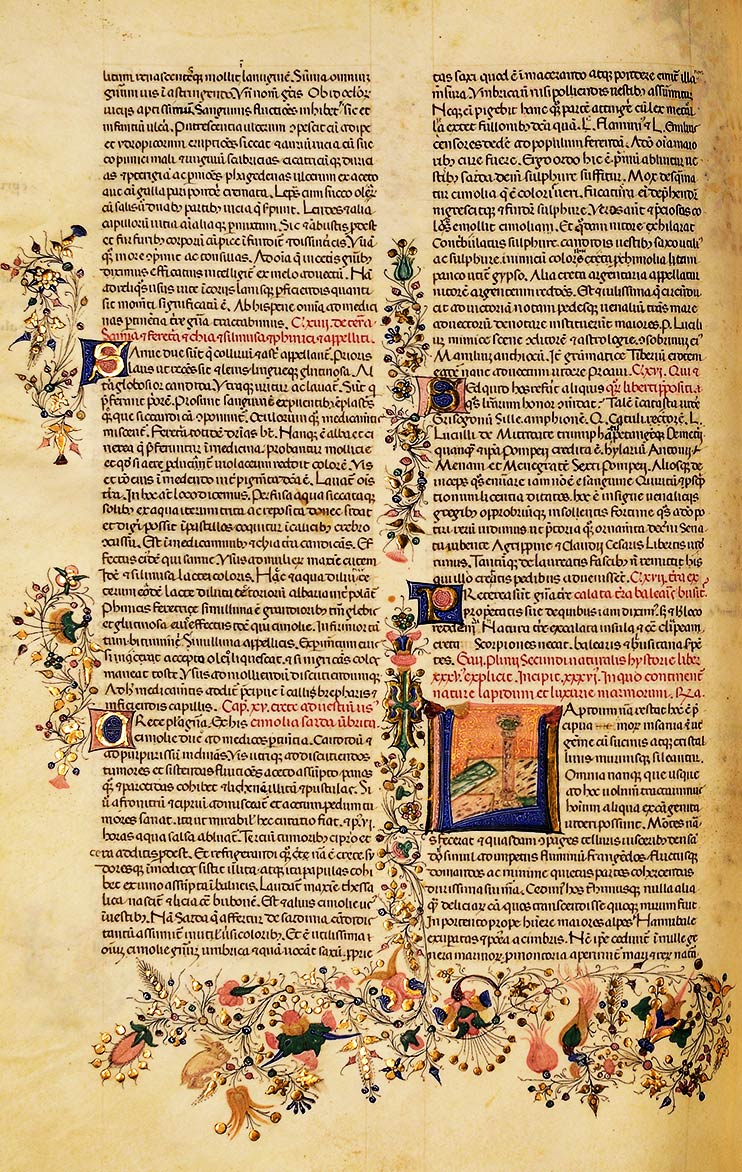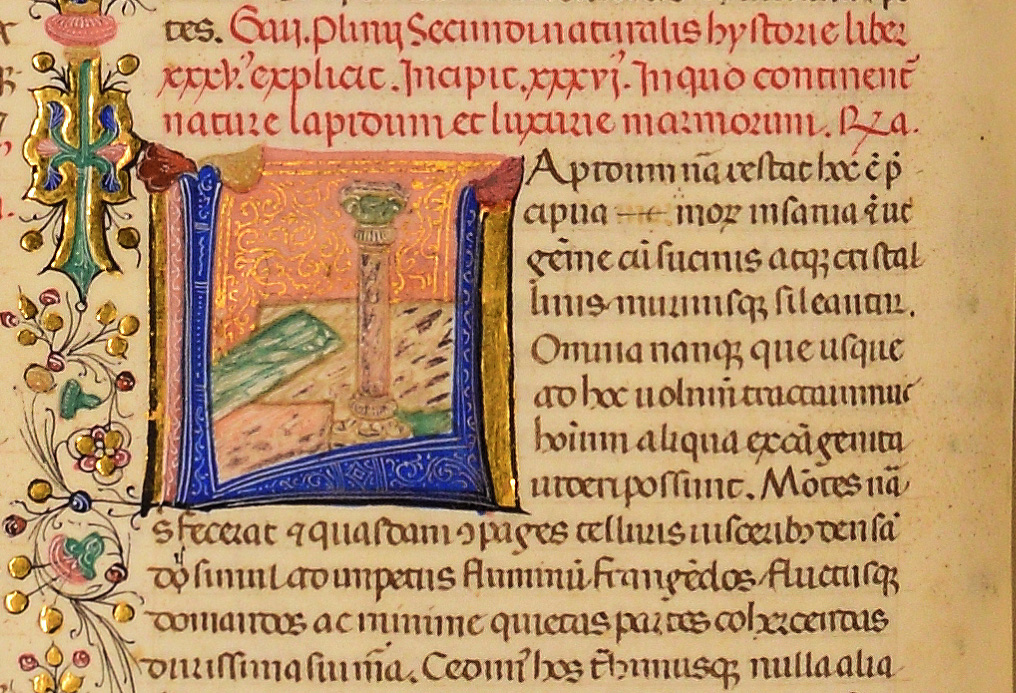
Manuscripts

Parma, Biblioteca Palatina, ms. Parm. 1278, f. 216v.
Incipit of book 36.
This section focuses on the manuscript tradition of Pliny the Elder’s Naturalis Historia. Owing to its defining features (such as its length, multiplicity of themes and technicalities), Pliny’s Naturalis Historia has a complex manuscript tradition, with a great number of sources including complete and incomplete copies dated between the fifth and the fifteenth centuries. The large number of surviving manuscripts of the Naturalis Historia shows the relevance as well as the large dissemination of the text in numerous intellectual contexts.
Reconstructing the process that has permitted a text to survive through the centuries, and to be preserved and transmitted to us, on the one hand shows the relevance attributed to that text in different historical contexts, and on the other allows us to analyse the text itself together with the changes which may have occurred over the centuries. For, before the advent of the printing press, texts were hand-copied, and this, together with the loss of knowledge, and the damage occurring to manuscripts over the centuries, has introduced several mistakes in the text. The goal of Philology is to amend such mistakes, reconstructing a text as close as possible to the ancient original by analyzing the relationship among the surviving manuscripts, as well as the steps through which the text has been transmitted to us. Therefore, one can easily argue that the practice of reading ancient texts is strictly linked to the philological analysis of their manuscript tradition, even when they are not used for literary and philological purposes: establishing a reliable text is the first step to fully comprehending it and hence to using it in different scholarly contexts.
For these reasons, this section provides scientific and reliable tools for introducing the philological analysis of the Naturalis Historia as well as detailed descriptions of each manuscript, together with a digital library that allows the reader to browse a codex not already digitized by the library where it is preserved.
The study and the digitization of these manuscripts are done in partnership with the institutions where the manuscripts are preserved.
To access the description of the manuscripts and the digital library, click here.

The manuscript tradition of the Naturalis Historia: an introduction
Edited by Elisa Lonati
> COMING SOON
Do you wish to contribute to this section, or do you have any suggestions for improving it? As a librarian, would you like to collaborate with us? Please contact us at info@oltreplinio.it. We would be very pleased to know you!
Ideation: Gianfranco Adornato, Eva Falaschi e Alessandro Poggio.
Editor: Eva Falaschi
Manager of the digital library: Maria Ida Gulletta.
Collaborators: Daniel Kiss, Elisa Lonati
